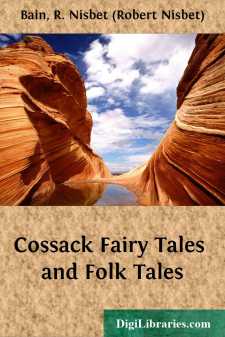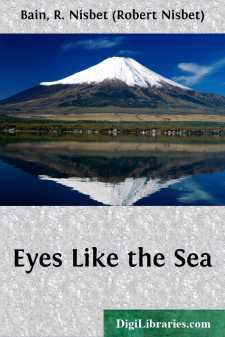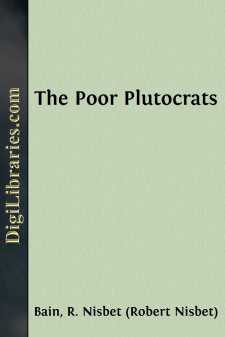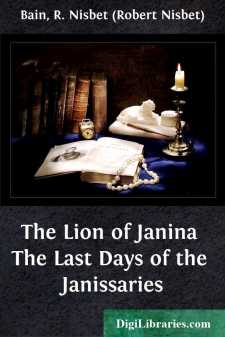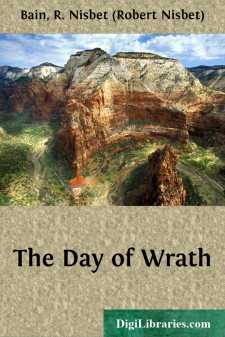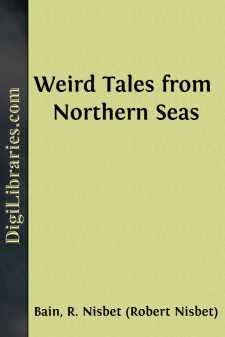Categories
- Antiques & Collectibles 13
- Architecture 36
- Art 48
- Bibles 22
- Biography & Autobiography 813
- Body, Mind & Spirit 142
- Business & Economics 28
- Children's Books 15
- Children's Fiction 12
- Computers 4
- Cooking 94
- Crafts & Hobbies 4
- Drama 346
- Education 46
- Family & Relationships 57
- Fiction 11829
- Games 19
- Gardening 17
- Health & Fitness 34
- History 1377
- House & Home 1
- Humor 147
- Juvenile Fiction 1873
- Juvenile Nonfiction 202
- Language Arts & Disciplines 88
- Law 16
- Literary Collections 686
- Literary Criticism 179
- Mathematics 13
- Medical 41
- Music 40
- Nature 179
- Non-Classifiable 1768
- Performing Arts 7
- Periodicals 1453
- Philosophy 64
- Photography 2
- Poetry 896
- Political Science 203
- Psychology 42
- Reference 154
- Religion 513
- Science 126
- Self-Help 84
- Social Science 81
- Sports & Recreation 34
- Study Aids 3
- Technology & Engineering 59
- Transportation 23
- Travel 463
- True Crime 29
Pretty Michal
Description:
Excerpt
CHAPTER I.
Wherein is shown how sagely the Rev. Master Fröhlich brought up his motherless daughter, pretty Michal.
In the days when the Turkish Sultan ruled in Hungary as far as Ersekujvar and Eger, the German Kaiser from Eger to the Zips country, and George Rakoczy, Prince of Transylvania, from Zips to the Szeklerland—all three of whom were perpetually fighting among themselves, sometimes two against one and sometimes all together indiscriminately, so that the inhabitants had a very lively time of it—in those days (somewhere about 1650) the learned and reverend Master David Fröhlich was the pride of the Keszmár Lyceum and Professor of Mathematics and Astronomy there. Master Fröhlich knew everything which could be reasonably expected of a man. He knew how to calculate solar and lunar eclipses. He knew how to take the old town-clock to pieces when it got out of order and put it together again. He could fix the weather for a whole year beforehand. He understood the aureus calculus and could cast a horoscope with any man living. He knew by heart which trades could be carried on best in each of the twelve months. He had at his fingers' ends the arcana and secret properties of all herbs and plants, could explain sympathies and antipathies, nay, he could be implicitly trusted in the manufacture of amulets.
But his most difficult science was that of which we are now about to speak.
He had one beautiful daughter whom he had brought up without the help of a mother, and that, surely, is a feat of which any man might be proud! His wife had died on the very day on which she had given birth to the child, and the widower had forthwith steadily set before himself the problem of educating the girl without the slightest female intervention.
The way in which he managed by artificial contrivances to find a substitute for mother's milk was a miracle of itself; but even that was as nothing compared with the masterly system of education which he himself invented and applied, in order to make his daughter grow up a discreet and modest maiden, despite the grievous want of maternal supervision. For he would neither marry again, nor trust his daughter to female nurses and servants, nor even admit any of his own kinswomen into the house.
He inaugurated his system at her very baptism, by giving his daughter the name of Michal. At first hearing, everyone, of course, takes this for a man's name, never suspecting that a damsel lurks behind it; perhaps only one among a thousand even knows that it is a girl's name after all. Was not one of the wives of King David called Michal?—she, I mean, who laughed when she saw the great King dancing in the street. So the reverend and learned gentleman christened his little daughter Michal, arguing that the Evil One would not so lightly venture to tackle a name with such a masculine ring about it.
Then he personally instructed his daughter in all good things from her babyhood upward. She never went to school. Everything, from the alphabet to the catechism, she learnt at home. Later on, as the damsel's mind grew stronger, he taught her not only the Latin and Greek tongues, but all the sciences which are useful and necessary in life; e. g., the tabular calculations as to how much meat, butter, meal, peas, grain, salt, etc., a prudent housewife should dispense for two, four, eight, sixteen, etc., persons per day, week, or month, so that the domestics may neither suffer hunger nor yet overload their stomachs (N. B., salt must be particularly well looked after lest the mice get at it, for everyone knows that when mice eat salt they multiply prodigiously); item, wherewith to feed the livestock; how much meal and bran should be got in exchange from the miller for so much wheat; how to prepare yeast, knead dough, bake bread, not forgetting to always turn the tub toward the north. And bread making in the Highlands of North Hungary was a serious business in those days, for rye meal was often scarce, and bread had to be made of spelt, buckwheat, sweet peas, and other disgusting things. Galen especially recommends bean meal bread. Dioscorides, on the other hand, prefers a judicious admixture of onions. Nay, in hard times, when no corn is to be had, poor people must be prepared to make bread of dried quinces, medlars, elderberries, hips and haws, and fungus, while the clergy and people of quality must be content with honey bread, maize bread, or even oil cakes....



